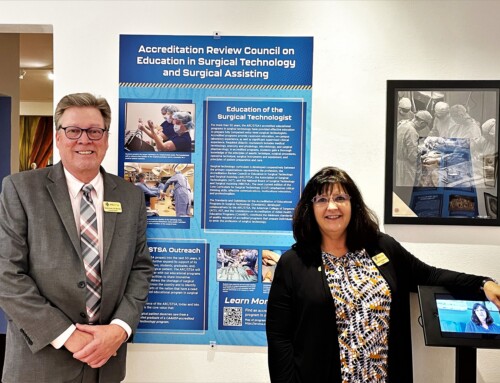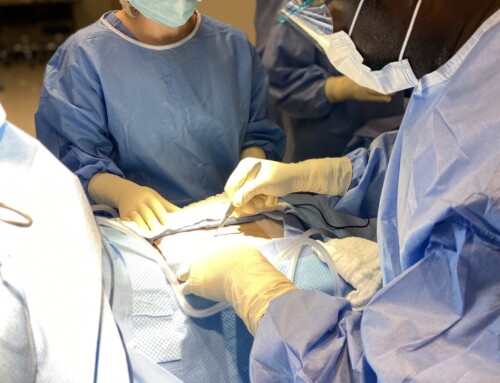By Katie Noyce, AAS, CSA, CSFA, CST, FAST, and Dennis Stover CSA, CST, FAST
Meridian Institute of Surgical Assisting, established in 1999, is currently the only accredited surgical assisting program incorporating a porcine live-tissue training lab for students pursuing a career as a surgical first assistant. Before the institute was established in 1999, live tissue training was exclusive to physicians training to become surgeons. Originally located in Joelton, Tennessee, the facility moved to Nashville in 2010 to allow more students the opportunity to gain hands-on experience in a laboratory setting.
Meridian’s laboratory portion of the program is a one-week, in-person experience within the first six months of enrollment in the program. The program itself is a one-year program comprised of the online didactic courses, the live tissue lab and hands-on clinical cases. The week students are in the laboratory, they gain 60 hours of hands-on surgery and related classroom experience. Additionally, they work and observe alongside four laboratory instructors experienced in different specialties and with varying lengths of tenure in the field.
The ability to take our students into a controlled environment and allow them to work on live tissues provides them with a solid foundation for their externship process; something we take great pride in and heavily weave into our curriculum. While we are in the laboratory, our curriculum is designed to focus on the hands-on skills of surgical assistants. Foam, synthetic and cadaver tissues all give students a good hands-on experience. The porcine laboratory takes it a step further, as the live tissue bleeds, tears and has abnormalities like real tissues.
We start our Monday early by learning to one hand, two hand and instrument tie. This is the time in which we discuss body mechanics, as well as proper tying techniques. On Monday afternoon, we offer a suture workshop and teach the basic fundamentals of suturing, focusing on common stitches found in the operating room. Tuesday is a long lecture day, touching on topics like professionalism. We encourage and remind our students that as they move into the field, professionalism is very important. We also discuss Foley insertions, tourniquet placements, and casting and splinting. For Foley and tourniquet placements, students are able to practice on medical manikins. For casting and splinting, the students pair up into groups and practice putting a splint on a classmate using plaster of paris.
The remainder of the week is spent in the laboratory performing surgeries, allowing students to gain a variety of laboratory-specific skills such as local injections to the removal of a kidney. The live-tissue porcine laboratory is USDA-approved, and we modify our live tissue training and surgery as it changes with technology.
While in the laboratory, students work in the capacity of the surgeon; being with someone who performs these procedures regularly adds an extra level of insight. With this experience, students quickly gain an understanding of the importance of proper tissue handling. They also perform a variety of open procedures, such as a cholecystectomy, splenectomy, nephrectomy, modified Billroth II, lung wedge resection and an aortic patch. A laparoscopic cholecystectomy is also performed.
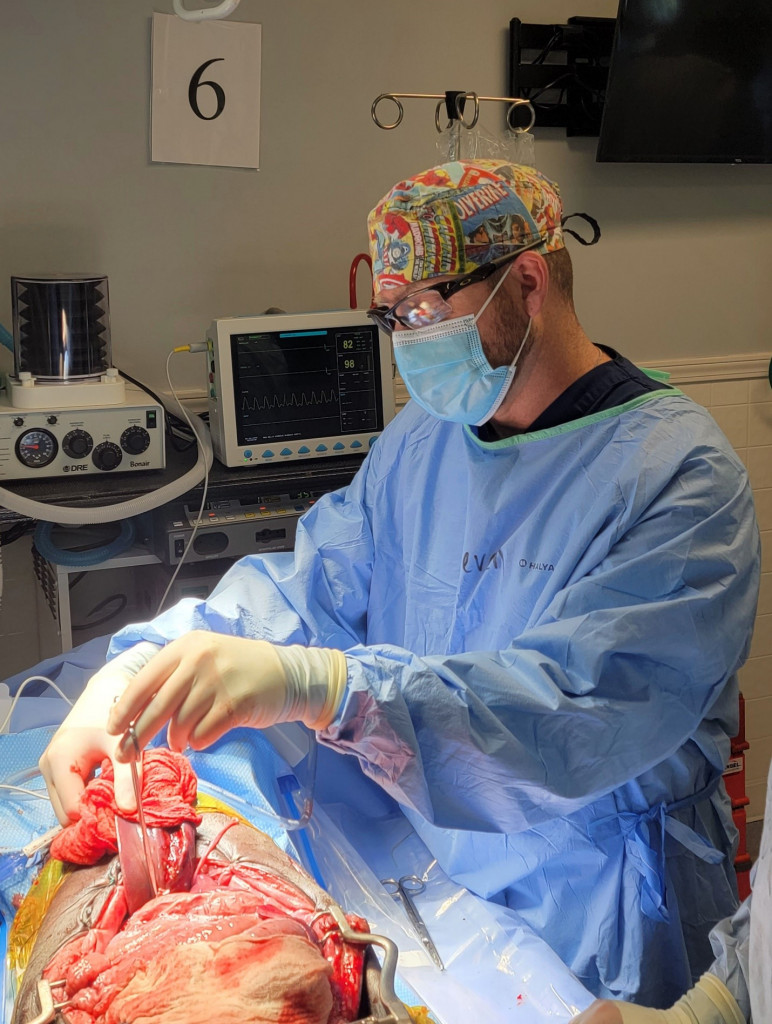
A student at the Meridian Institute of Surgical Assisting works on porcine live tissues in the training laboratory.
Each surgical procedure is supervised by one of our highly skilled instructors. This gives students the ability to learn by doing and work through surgical emergencies safely under the guidance of a professional. Our students have shared that one of the rewards of this structure is that they are not on the spot in the operating room in front of surgeons, preceptors, coworkers and other staff where mistakes are often critiqued and can be detrimental to one’s self-esteem. Often a first impression is a lasting impression, and we want to give our students the tools and knowledge to make that great first impression.
Meridian Institute of Surgical Assisting is focused on the success of our students, as well as the success of the patients. Knowing that every action one takes will impact the well-being of the patient(s), this laboratory gives students a realistic surgical training experience. The knowledge gained from the weeklong experience also helps them gain confidence in their abilities and excel in their clinical rotations. Many of our facility preceptors say that when our students come to their facility, they know they have been taught the basic surgical principles and skills, which allows them to work in specialized cases on an advanced level.
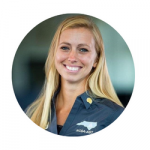
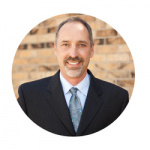 Katie Noyce, AAS, CSA, CSFA, CST, FAST (left), is the lab director at Meridian Institute of Surgical Assisting. She enjoys watching the students fine tune their skills to become the future of our profession. Dennis Stover CSA, CST, FAST (right), is the president and founder of Meridian Institute of Surgical Assisting.
Katie Noyce, AAS, CSA, CSFA, CST, FAST (left), is the lab director at Meridian Institute of Surgical Assisting. She enjoys watching the students fine tune their skills to become the future of our profession. Dennis Stover CSA, CST, FAST (right), is the president and founder of Meridian Institute of Surgical Assisting.


